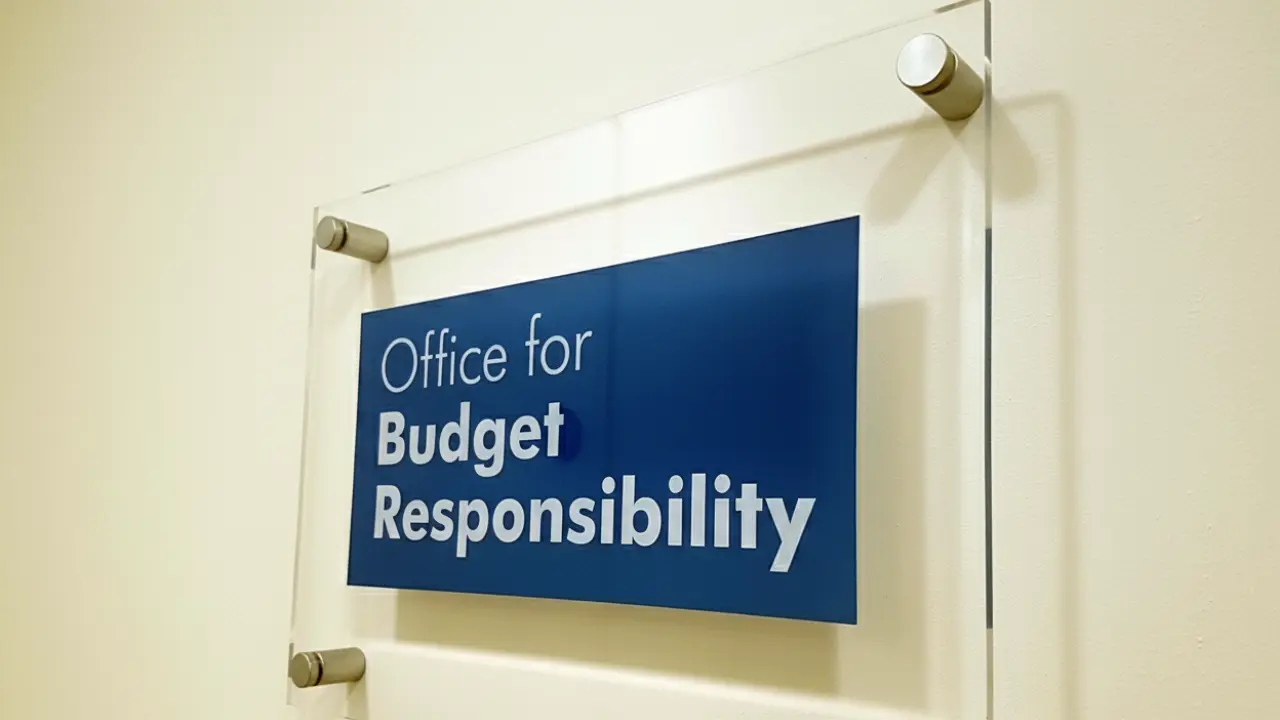In the complex world of government spending and taxation, a question often arises: can we trust the numbers? For decades, the UK Treasury produced its own economic forecasts, leading to concerns that they might be overly optimistic or politically motivated. This lack of independent scrutiny created a credibility gap, especially during times of fiscal strain.
Enter the Office for Budget Responsibility (OBR), a game-changing institution created in 2010. Its mission is simple but profound: to provide independent and authoritative analysis of the UK’s public finances.
Think of the OBR as the nation’s financial referee, ensuring the government’s fiscal playbook is grounded in reality, not wishful thinking. By taking the politics out of forecasting, the OBR promotes transparency and helps the public and Parliament hold the government to account. But what exactly does it do, and how does this unique body operate? Let’s dive in.
What is the Office for Budget Responsibility (OBR)?
The Office for Budget Responsibility is a non-departmental public body in the UK, funded by the Treasury but operating with a high degree of independence. It’s a key part of the UK’s fiscal framework, designed to address the historical weaknesses in economic and fiscal forecasting. The OBR’s creation was a response to the need for a credible and trusted source of financial data, free from political influence.
Its primary role is to produce official forecasts for the UK economy and public finances. These aren’t just for show; they form the basis of the Chancellor’s major financial statements, like the Budget and the Autumn Statement. The OBR’s work is crucial for both the government, which uses the data to inform its policy decisions, and for the public, who can use the information to better understand the state of the nation’s finances.
Core Functions: The OBR’s Day-to-Day Operations
The OBR’s work is multifaceted, but its key functions can be broken down into four main areas.
1. Economic and Fiscal Forecasting 📊
This is the OBR’s most well-known function. At least twice a year, it produces five-year forecasts for the economy and public finances. These detailed reports, known as the Economic and Fiscal Outlook (EFO), are published alongside the government’s fiscal events. The forecasts include projections for:
- Gross Domestic Product (GDP): The total value of goods and services produced.
- Inflation: The rate at which prices for goods and services are rising.
- Public Borrowing: The amount the government needs to borrow to cover its spending.
- Public Debt: The total amount of money the government owes.
- Tax Revenues and Public Spending: How much the government expects to take in and spend.
The OBR’s independence is critical here. It has complete discretion over the methodology and assumptions it uses, ensuring the forecasts are objective and free from political bias.
2. Assessing the Government’s Performance
Beyond just providing forecasts, the OBR acts as a watchdog, assessing whether the government is on track to meet its own fiscal targets. The government sets a “fiscal mandate” outlining its goals for debt and borrowing, and the OBR’s job is to use its forecasts to judge the probability of these targets being met.
Also Read: Greek Tourism Crisis: Tourists Halt Migrant Boat in Daring Showdown
This adds a layer of accountability. For example, if the government announces a new spending policy, the OBR will analyze its likely impact on borrowing and debt and report on whether it makes the fiscal targets harder or easier to achieve. This scrutiny helps to keep the government’s fiscal policy on a sustainable path.
3. Scrutinising Policy Costings 💸
When a government announces new tax or spending measures, the Treasury provides an estimate of how much it will cost or raise. The OBR’s role is to independently scrutinize these costings to ensure they are reasonable and robust. This process, known as “policy costing,” is vital for preventing the government from making unfunded promises. The OBR provides a formal assessment, which is published alongside its EFO report.
4. Assessing Fiscal Sustainability and Risks
The OBR also looks at the bigger picture, assessing the long-term sustainability of the public finances. It examines how major demographic and economic trends, such as an ageing population or climate change, might affect public spending and debt over the next 50 years. This long-term analysis helps to highlight future challenges and inform long-term policy decisions. For instance, the OBR’s “Fiscal Risks and Sustainability Report” provides a stark look at the financial pressures facing the UK.
How the OBR Works: A Look Under the Hood
The OBR operates with a small team of experts, led by a three-member Budget Responsibility Committee (BRC). The BRC is responsible for the final economic and fiscal forecasts. The process is highly collaborative, involving several rounds of analysis and discussion between the OBR and the Treasury.
Here’s a simplified breakdown of the process:
- Request for Forecast: The Chancellor of the Exchequer formally commissions the OBR to produce a forecast, typically giving them at least 10 weeks’ notice before a fiscal event.
- Information Gathering: The Treasury provides the OBR with information on its planned tax and spending policies.
- Iterative Process: The OBR’s staff, using their own models and judgments, develop a draft forecast. This is presented to the Chancellor, who can provide feedback. Importantly, while the Chancellor can challenge the OBR’s assumptions, they cannot dictate the final numbers.
- Final Forecast: The BRC signs off on the final forecast. This report is then published on the day of the fiscal event, providing a transparent and credible backdrop to the government’s announcements.
The OBR’s independence is underpinned by legislation, specifically the Budget Responsibility and National Audit Act 2011. This act gives the OBR the authority to act objectively and transparently, and requires it to be accountable to Parliament.
The OBR in Action: A Real-World Example
The OBR’s influence is significant. Take, for example, the Autumn Statement in 2022. Following a period of market turbulence, the new government’s ambitious fiscal plans came under intense scrutiny. The OBR’s independent assessment of the government’s measures was crucial. It confirmed that the government was on track to meet its fiscal rules, a finding that helped to calm financial markets and restore confidence. This real-world example highlights the power of an independent body to stabilize the economy and promote sound fiscal policy.
According to a 2022 report by the Institute for Government, the OBR has successfully fulfilled its mandate, with 94% of economists surveyed agreeing that it has improved the quality of economic forecasts. This demonstrates the high regard in which the institution is held.
The OBR’s Impact and the Path Ahead
The creation of the Office for Budget Responsibility marked a significant shift in UK fiscal policy, moving away from politically-influenced forecasts towards a more transparent and credible system. It provides a vital check on government spending and borrowing, helping to ensure the long-term health of the UK economy.
For anyone interested in understanding public finance, the OBR’s reports are a must-read. They offer a clear, impartial view of the UK’s financial landscape and the challenges ahead. As the UK faces new fiscal pressures, from an ageing population to the costs of net zero, the OBR’s role will only become more important.
Your Takeaway on the OBR
The Office for Budget Responsibility is not just another government body; it’s a cornerstone of modern UK public finance. It provides the independent, evidence-based analysis needed for sound economic decision-making and informed public debate. By forecasting, scrutinizing, and assessing fiscal policy, the OBR helps ensure the UK’s finances are managed responsibly and transparently.














